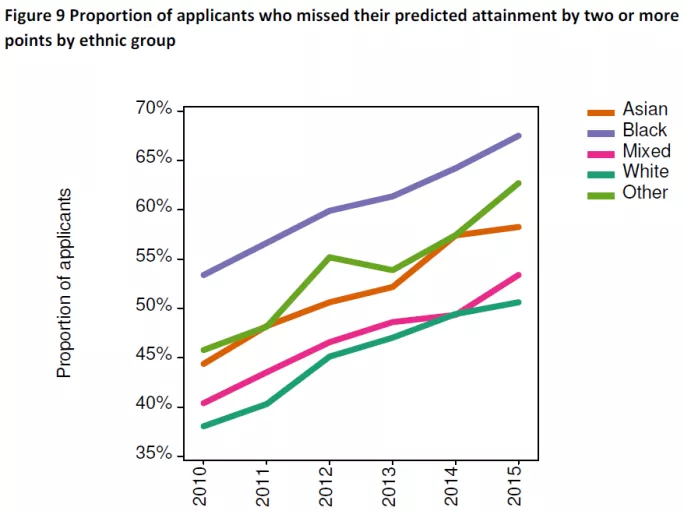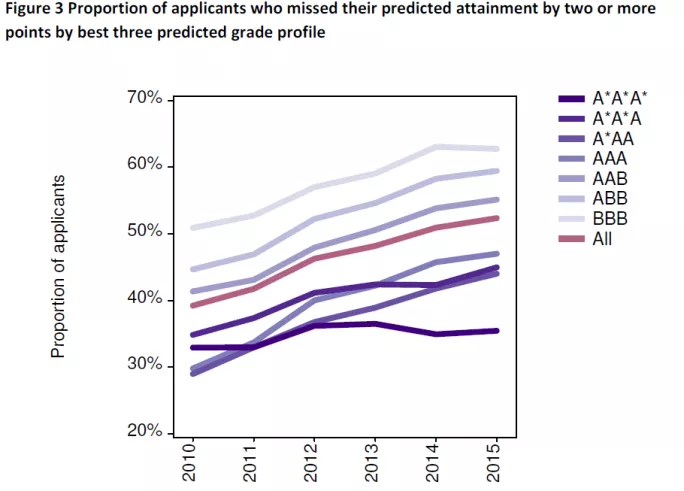Pupils from disadvantaged areas or from certain ethnic minority groups are significantly less likely to meet their predicted A-level grades than their white counterparts, a new study has found.
A report from the university admissions body UCAS finds that in 2015, black applicants to university were 33 per cent more likely to miss their predicted grades than those from white backgrounds, before any other factors were taken into account.
And nearly 59 per cent of students from the most disadvantaged postcodes, the study finds, missed their predicted level of attainment by two or more grades, compared to more than 48 per cent of students from the richest areas.
Overall, the report says that just over half of English 18-year-olds applying to university missed their A-Level predictions by two or more grades last year - an increase of 34 per cent on 2010.
The study revealed there was a wide range of factors affecting a pupil’s likelihood of achieving their predicted grades, with the interplay between GCSE results and the level of the predicted grades cited as the single most important factor.
A typical applicant with predicted grades of ABB is almost 50 per cent more likely to miss by two grades or more if they have GCSE results averaging A/B rather than A*/A, the report says.
A typical applicant is around two thirds more likely to miss their predictions by two grades or more if they are studying biology, chemistry and maths than a similar applicant studying English, history and art.
The findings come just months after UCAS chief executive Mary Curnock Cook said that teachers were “bumping up” their students’ predicted grades because universities were increasingly flexible about admitting students who had not met their offers.
She said: “University admissions staff understand that predictions represent an optimistic forecast of an applicant’s potential. The increase in over-prediction of grades over time has not materially altered the pattern of admissions and universities are still admitting students who have the potential to succeed on their chosen courses.”
Want to keep up with the latest education news and opinion? Follow TES on Twitter and like TES on Facebook






